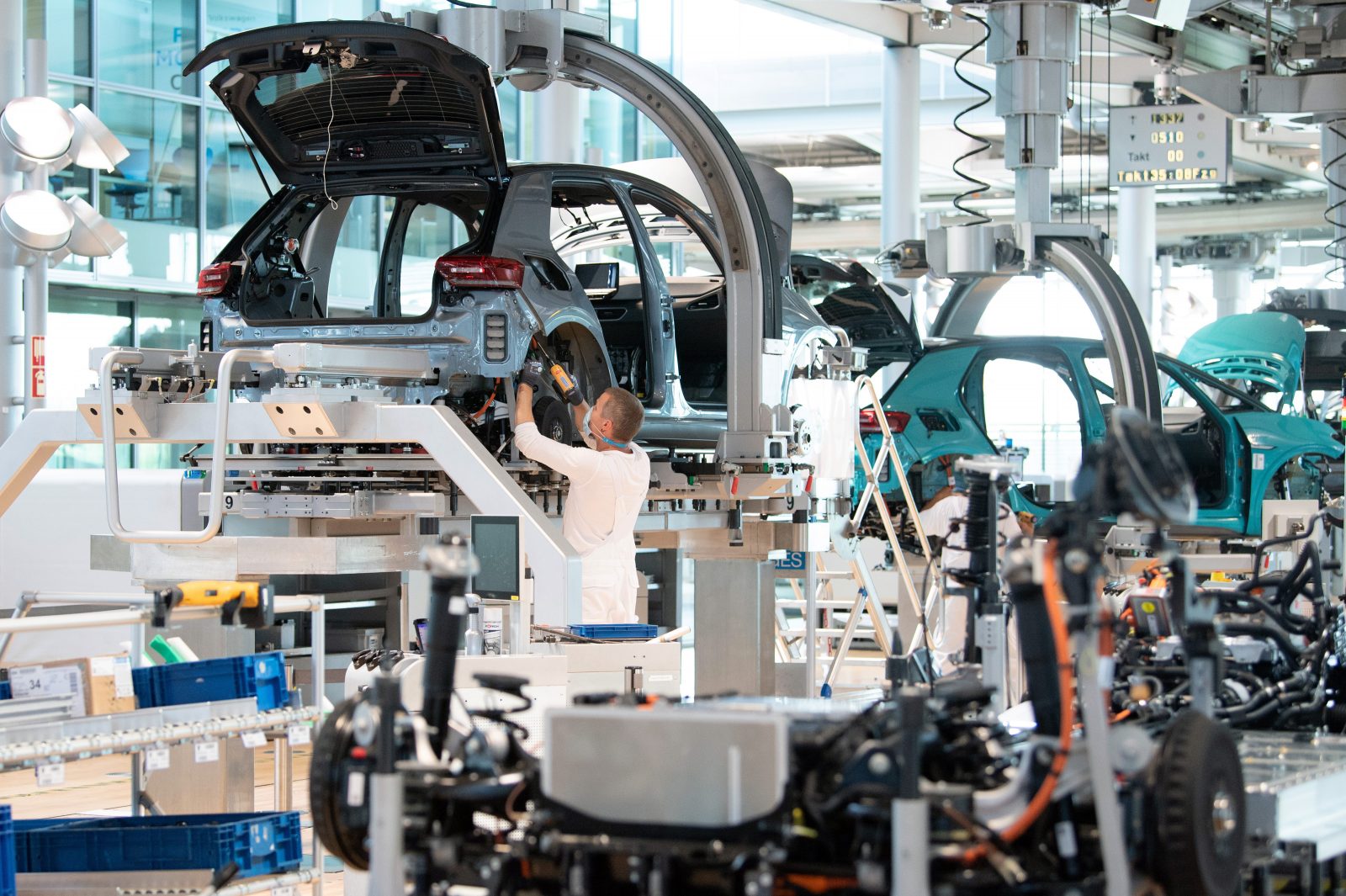They may be smaller than the size of a matchbox, but a global shortage of semiconductor chips — the electric circuits that are essential for vehicle manufacturing — has brought the automotive industry in the United States to a halt. Last week, General Motors announced it would shut down production at nearly all of its North American assembly plants due to a lack of available chips. Ford and Volkswagen are currently partially shut down, joining Subaru, Mercedes-Benz, Toyota, Nissan, and Stellantis, all of which have stopped assembly lines at some point over the past year.
Semiconductor chips are used in a number of products, from iPads to medical equipment. In vehicles, the electrical circuits control everything from in-car entertainment systems to battery management to driver assistance. Experts say the shortage is being driven by COVID-19 constraints on the supply system: an increased demand for electronics as people work and learn from home, combined with disruptions in production. Some, like Ganesh Moorthy, CEO of the circuits company Microchip Technology, argue the problem has been building for years, starting with tariffs in 2018.
The semiconductor chip shortage adds to a battery shortage linked to limited manufacturing capacity and an increase in the price of raw materials. Combined, the two are bad news for automakers trying to create cars with lower emissions.
Some companies, including GM and Stellantis, have prioritized the production of higher-profit vehicles, like pickup trucks, over lower-emissions cars and crossovers. To keep assembly lines going, GM removed the automatic start-and-stop feature and fuel-economy modules on some of its 2021 models, meaning vehicles with reduced miles-to-the-gallon. “We are currently making decisions that enable us to continue building our highest demand products, including our full-size SUVs and pickups, to the best of our ability,” Daniel Flores, a spokesperson for GM, told Grist.
Several automakers are also struggling to maintain production of electric vehicles. Ford’s Mach-E Mustangs, for example, have been delayed by six weeks. GM closed its all-electric vehicle plant in Orion, Michigan, a few weeks ago due to the shortage. Now, the plant is closed again due to a shortage of battery packs from a recall (which some experts say is also linked to the battery shortage). According to GM’s CEO, Mary Barra, the chip shortage could result in $2 billion in total losses for the company in 2021.
The shortage of semiconductor chips threatens goals outlined by President Joe Biden in an August executive order that half of all new cars sold in the U.S. be electric by 2030. Transportation accounts for almost 30 percent of harmful greenhouse gas emissions in the country each year. But electric cars are chip-heavy machines: A compact, gas-powered vehicle, for example, uses around $330 worth of chips; an electric vehicle can require up to $1,000 of the technology.
“If we’ve got an ongoing chip shortage for an extended period of time, that means those [electric] vehicles can’t get built, and they can’t get sold, and we continue to have more older vehicles staying on the road longer,” Sam Abuelsamid, an analyst at the advisory group Guidehouse Insights, told Scientific American.
Estimates show the auto industry may not rebound from the semiconductor supply chain issue until 2023. Even then, it could take until 2030 for the industry to rebound to normal production levels, according to a report by a German-based company, the Center for Automotive Research.
Flores told Grist that while the semiconductor chip shortage may be impacting the company’s short-term production, it will not affect GM’s long-term electrification goals. The company previously announced plans to produce only electric vehicles by 2035.
Gunnar Herrmann, an executive director of Ford Germany, told CNBC he estimated the chip shortage could last through 2024 and that the move to electric vehicles could further worsen the chip shortage in the coming decade.
Biden ordered a review of the semiconductor chip and batteries supply chain in February to address the shortage. Currently, just two companies in Asia produce 70 percent of the world’s semiconductor chips.
Joe McCabe, CEO of AutoForecast Solutions LLC, told Grist that because the government will want to avoid being stuck without chips again, “you’re going to see a lot more semiconductor plants being assembled [in the U.S.].”
In June, the Senate passed the CHIPS for America Act, which would give $52 billion to semiconductor research and development. The legislation has not yet been passed by the House. In a blog post in support of the Act, the Alliance for Automotive Innovation, wrote, “Many innovations that are underway in the automotive space and that will define the future of mobility – including electrification, automation, and connectivity – are highly dependent on semiconductors.”



